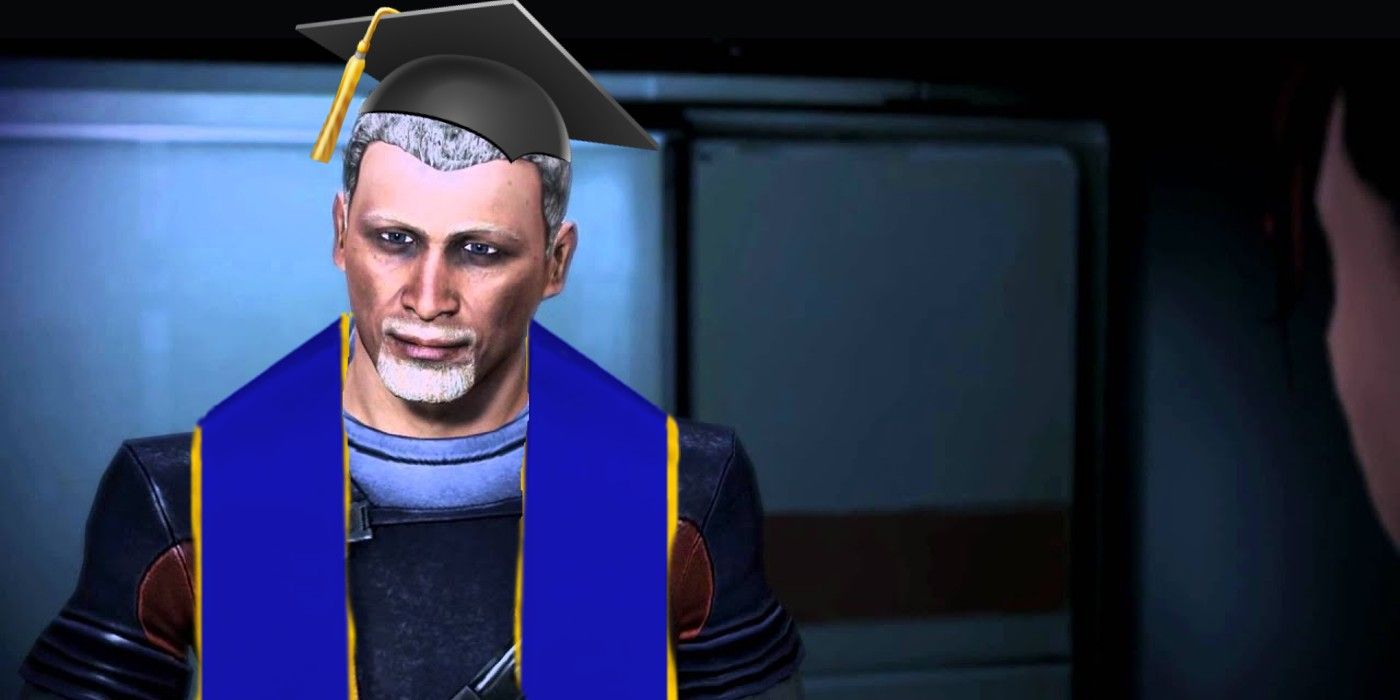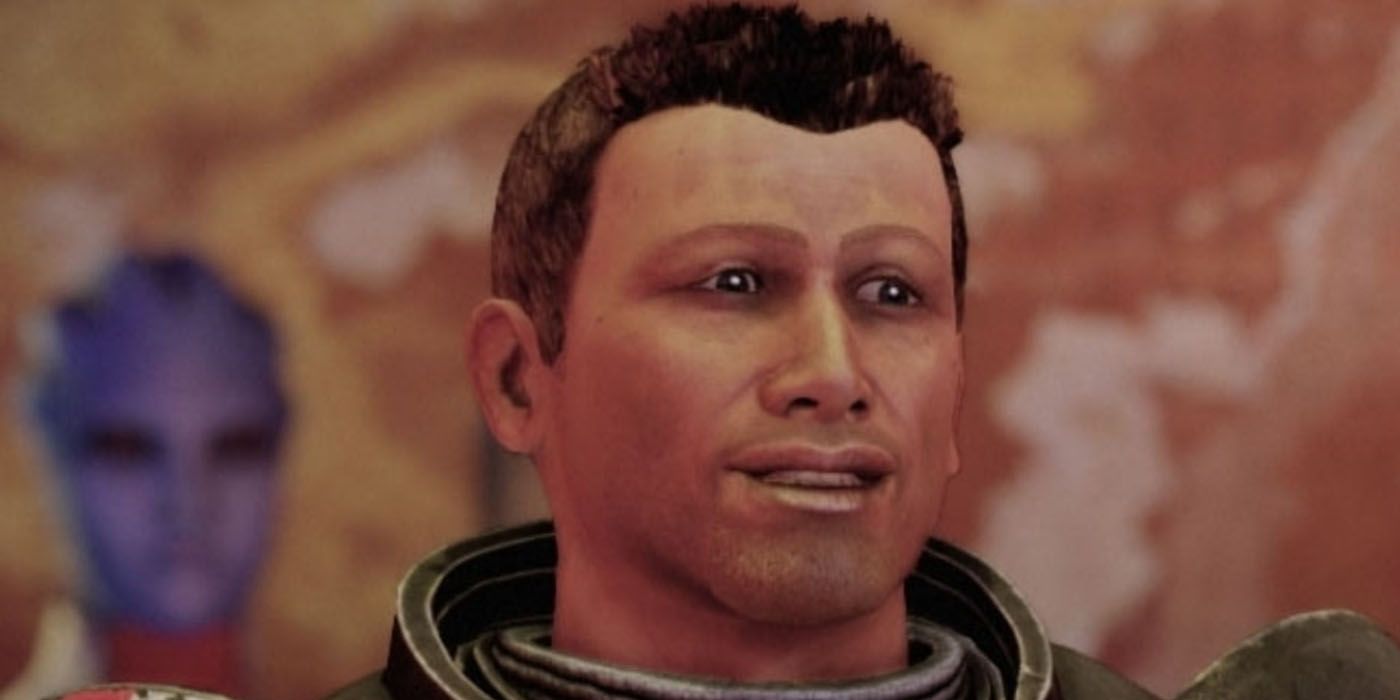
Fans of the Mass Effect trilogy might remember Conrad Verner, one of the strangest and most rightfully underestimated characters in the franchise, who consistently acts as Commander Shepard's biggest fan. Being a story-driven series, Mass Effect hosts dozens of characters both romanceable and not across its first three entries, but Conrad stands out as one of the series's most obnoxious and clueless - though arguably well-meaning - recurring characters. Despite his habit of inconveniencing Shepard with his poorly-executed attempts at heroism, Mass Effect's Conrad is actually secretly a genius whose expertise comes in handy in the third game - if the player manages to keep him alive that long.
[Warning: The following article contains spoilers for the Mass Effect Trilogy.]
Shepard can interact with Verner three times in the first game, and each time, Verner is enthusiastic to the point of creepiness. He seems somewhat obsessed with Shepard and eventually asks to become a fellow Spectre. If in the flurry of Mass Effect's biggest choices Shepard chooses to placate him, he reappears in the second entry, where he has taken to imitating Shepard and attempting to right wrongs throughout the galaxy. He ends up acting as a pawn for a criminal and proves he is simply not cut out for a life of adventure and heroism, leaving players convinced he is nothing more than a well-intentioned, perhaps less-than-sane liability.
In Mass Effect 3, Conrad reveals hidden talent and intelligence that defies his notoriously erratic behavior. After another failed attempt at heroism, Conrad explains that he wrote his doctoral dissertation on Xenotechnology and dark energy integration - two scientific areas crucial to building the Crucible, an alien artifact that Shepard constructs throughout the course of the third game. Information on the Crucible is generally scarce, and scientists with the expertise to help construct it are few and far between. In other words, Conrad is a genius in the lore and universe of Mass Effect, whose insights on the universe's most niche science should be well respected.

Conrad's research is far more useful than his attempts to be the next Commander Shepard, and feels surprising given his previous behavior. Every character who comes into contact with him is, at best, mildly annoyed, and he often comes off as somewhat pathetic. Even his wife (later revealed to be imaginary) seems to want nothing to do with him, as she supposedly pays for his transportation away from home. After he fulfills his dream of being useful to Shepard, he punctuates his contribution by admitting he has a shrine to the protagonist in his home.
Luckily, as long as the player takes appropriate action, Conrad ends up making a friend - a law enforcement informant who bonds with Conrad over Shepard's positive influence on their lives. Conrad's contribution requires specific choices across all three games, so because of even Mass Effect Legendary Edition lacking general guidance on those sorts of choices, the player is more likely only to know Conrad as something of a buffoon. But despite this being a small, relatively absurd, and seemingly inconsequential storyline in the Mass Effect trilogy, BioWare included a satisfying ending for any player willing to go the extra mile to obtain it. Anyone planning on starting a Paragon playthrough should take care to talk to Conrad Verner, because this annoying super-fan is actually a whole lot more than he might first appear.
Comments
Post a Comment